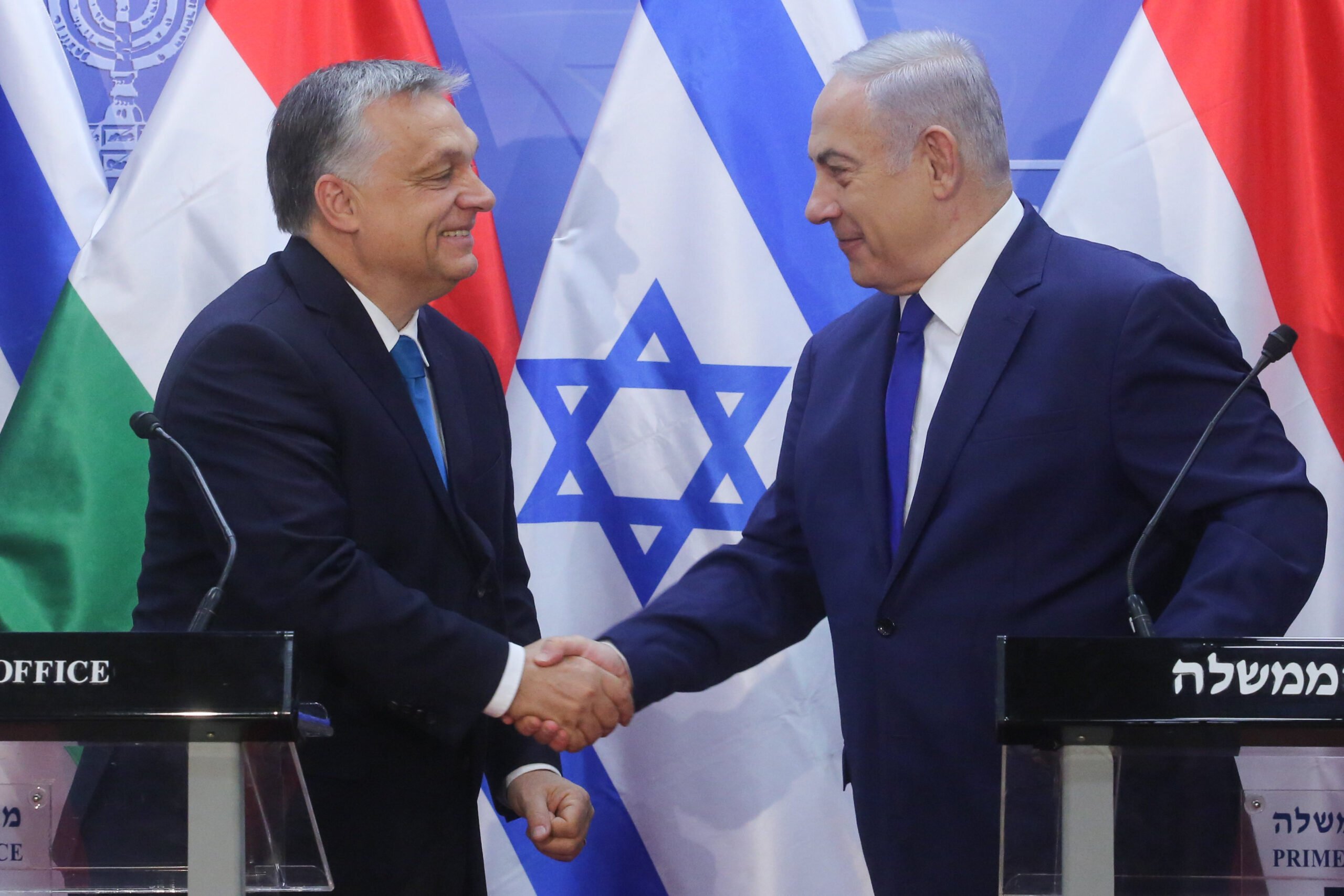ARTICLE AD BOX
The Netherlands, Italy, Spain, Finland, Portugal, Slovenia, and Ireland are among the EU states that have said they would meet their ICC commitments.
By The Algemeiner and Reuters
Prime Minister Viktor Orban invited Israel’s Benjamin Netanyahu on Friday to visit Hungary but several other European nations said the Israeli premier would be detained if he set foot on their soil, following the issuing of an arrest warrant for him.
The International Criminal Court (ICC) issued arrest warrants on Thursday for Netanyahu, his former defense chief Yoav Gallant, and for a Hamas leader, Ibrahim Al-Masri, for alleged war crimes and crimes against humanity in the Gaza conflict. Israeli leaders, including Netanyahu and Gallant, adamantly rejected the allegations as false, saying the ICC’s actions were politically motivated.
All European Union (EU) countries are members of the court, which means they are supposed to enforce its warrants.
But the diverging reactions — and the fact that EU heavyweights Germany and France have not said if they would arrest Netanyahu — highlight the major diplomatic and political challenge posed by the ICC decision, which drew swift condemnation from Israeli leaders and the White House.
“For us Europeans, this warrant exposes a real dilemma between international law, which is our law, and our foreign policy, especially for those member states that are unconditionally backing Israel,” Eurointelligence analysts wrote in a note.
Assuring Netanyahu that he would face no risks if he visited Hungary, Orban branded the arrest warrants a “brazen, cynical, and completely unacceptable decision.” Orban, who is often at odds with his EU peers, has forged warm ties with Netanyahu.
“Today I will invite Israel’s prime minister, Mr. Netanyahu, for a visit to Hungary and in that invite I will guarantee him that if he comes, the ICC ruling will have no effect in Hungary, and we will not follow its contents,” Orban said.
The ICC, which does not have its own police force to carry out arrests, has only limited diplomatic means to force countries to act if they do not want to.
The Netherlands, Italy, Spain, Finland, Portugal, Slovenia ,and Ireland are among EU states that have said they would meet their ICC commitments.
Netanyahu will be arrested if he set foot in Ireland, Irish Prime Minister Simon Harris told RTE radio. “Yes absolutely. We support international courts and we apply their warrants,” Harris said.
Cyprus, which has close ties to Israel, regards the warrants as binding in principle, a government source told Reuters.
Germany Torn
But Berlin declined to spell out what it would do until and unless Netanyahu planned to travel to Germany, adding that legal questions had to be clarified regarding the warrant.
Germany “is one of the biggest supporters of the ICC — this attitude is also the result of German history,” a government spokesperson said.
“At the same time, it is a consequence of German history that we share unique relations and a great responsibility with Israel,” the spokesperson added, alluding to the Nazi era.
German officials said they will carefully examine the warrants and how to deal with them.
“I find it hard to imagine that we would make arrests on this basis,” government spokesman Steffen Hebestreit on Friday, pointing out that legal questions had to be clarified regarding the warrant.
France was also non-committal, toning down its initial reaction, which had been to say that its response would align with ICC statutes.
“France takes note of this decision. True to its long-standing commitment to supporting international justice, it reiterates its attachment to the independent work of the Court, in accordance with the Rome Statute,” Foreign Ministry spokesman Christophe Lemoine said in a statement.
Paris said on Friday the ICC decision was not a ruling but a “formalization of an accusation.”
France has been working on Lebanon ceasefire efforts and officials said cornering Netanyahu now could scupper those efforts.
Non-EU Britain — also an ICC member — was similarly circumspect in its response.
In the Netherlands, far-right leader Geert Wilders said he would meet his “friend” Netanyahu in Israel soon, even though the Dutch government has said it will act on the ICC‘s arrest warrant if the Israeli leader were to visit the country.
Wilders is the leader of the largest Dutch government party, but is not himself a cabinet member.
The Czech Republic, which like neighboring Hungary has traditionally sided with Israel, appeared similarly conflicted.
The Czech foreign ministry said Prague would respect its international legal obligations, while Prime Minister Petr Fiala described the ICC decision as “unfortunate” and said it would undermine the court’s authority.
The Palestinian terrorist group Hamas, which rules Gaza, launched the ongoing war in the Middle East with its invasion of southern Israel last Oct. 7. During the onslaught, the terrorists murdered 1,200 people, wounded thousands more, and kidnapped 251 hostages while perpetrating mass sexual violence against the Israeli people.
Israel responded with a military campaign aimed at freeing the hostages and dismantling Hamas’s military and governing capabilities in neighboring Gaza.

 3 months ago
134
3 months ago
134








 English (US) ·
English (US) ·